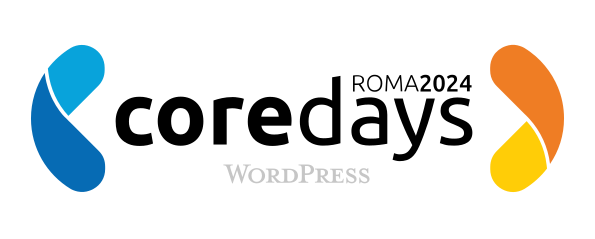In this insightful interview, Andrea Fercia, a long-time contributor to WordPress, shares his journey into the platform and his contributions, particularly to improving accessibility. With a background in web accessibility since 2004, Andrea was drawn to WordPress in 2013 for its accessibility potential. He discusses his early contributions to WordPress, including overcoming “Imposter Syndrome” and making his first code submission. Andrea reflects on the current state of WordPress development, the challenges posed by the separation of Core and Gutenberg development, and his vision for a more unified future. With a focus on accessibility, Andrea offers advice to new developers on contributing effectively to open-source projects and emphasizes the importance of welcoming processes and documentation to attract new contributors.
Can you share your first experience with WordPress, and what made you choose it?
In 2013 I was managing some customers online communication and looking for a publishing platform that was easy to use. I was already involved in web accessibility since 2004 and WordPress caught me as the most semantic, accessibility promising platform around.
How did you start contributing to open-source projects, and what was your first contribution to the WordPress community?
Before actively contributing I started following the development chats on Wednesdays because I wanted to get more familiar with the contribution process and the community around WordPress. At that time, the development chat happened on IIRC. Slack wasn’t around yet so yes, that’s a while ago. I’ve been an observer for quite a long time before actually starting contributing.
I think my first contribution was a ticket I created on Track in March 2014. A few months later I submitted my first ‘real’ patch to improve the accessibility and usability of the Link modal dialog in the editor. I do remember I was very hesitant, fully experiencing the ‘Impostor syndrome’ many first-time contributors may have experienced as well.
Finally, I overcame my hesitation and submitted my first code contribution because I knew other more experienced contributors in the community were ready to help me in the process.
What are some important projects or contributions you have made within the WordPress ecosystem?
I’ve been involved in the WordPress accessibility team since day one and am still doing my best to improve accessibility in WordPress.
What are your thoughts on the current state of WordPress development, and how do you see its future?
To me, the most important immediate point isn’t about the roadmap. It’s about the process. After more than seven years of development of the Gutenberg editor, I think the separation between Core development and the editor development isn’t beneficial to the project. The separation isn’t just about the tools used like Trac versus GitHub or SVN versus Git. It’s a separation into two pretty distinct communities of contributors who follow different processes and development flows. While this has certainly helped make the Gutenberg editor development faster, I’m not sure it adds value now after seven years since Gutenberg started. The separation in two communities just adds friction and makes it very hard if not impossible for contributors to efficiently follow the development. To me, the first goal WordPress should prioritize when it comes to process, is to stop developing the Gutenberg editor as a separate plugin. About the tools to use, there have been long conversations in the past on whether to keep using SVN or Git and Trac or GitHub. GitHub certainly offers superior tools for collaborative coding and reviews. On the other hand, I think the Gutenberg editor development should follow more closely the process that has always been in place for Core.
Regarding the roadmap and the future of WordPress, that’s up to the project owner. I do have my ideas and I think pursuing ‘growth’ as the only goal is not the right direction. I’d rather love to see WordPress do the right thing, be inclusive as much as its community is and lead by example.
What advice would you give to developers who are new to WordPress or open source?
Patience. Keep in mind that once you start contributing to a collaborative open source project you are in a community where people may have different opinions and ideas. Don’t struggle with things you don’t have control of. Spend your energies where you can be more impactful and bring in a positive change.
Which areas do you think need new energy and focus right now, and why? (Accessibility, plugins, themes, performance, etc.)
Accessibility. Yes, I’m biased.
What can we do to ensure that WordPress continues to work well with new technologies and stays ahead of trends? (Programming methods, new tech areas, headless, etc.)
I’m not sure WordPress should stay ahead of trends in the first place. I’m old, I’ve seen trends come and go. In my experience, in our industry new technologies, or rather new usages of existing technologies, cyclically emerge but then we always return to the basic technologies that are the pillars of the web. In my opinion, chasing new trends can even be dangerous for WordPress as I’d think WordPress rather needs to be a stable platform.
In your opinion, what are the best ways to engage and attract new developers to the WordPress community, and how can we make the onboarding process more welcoming and inclusive?
Good documentation for contributing is key. But way before that I would say that WordPress should refocus on improving process and welcoming new contributors. In the past, especially for Core development, there has always been a big focus on improving the tools for contributing and the onboarding process. I would say this is still true for Core development but I’m not sure it is for the Gutenberg editor development.
